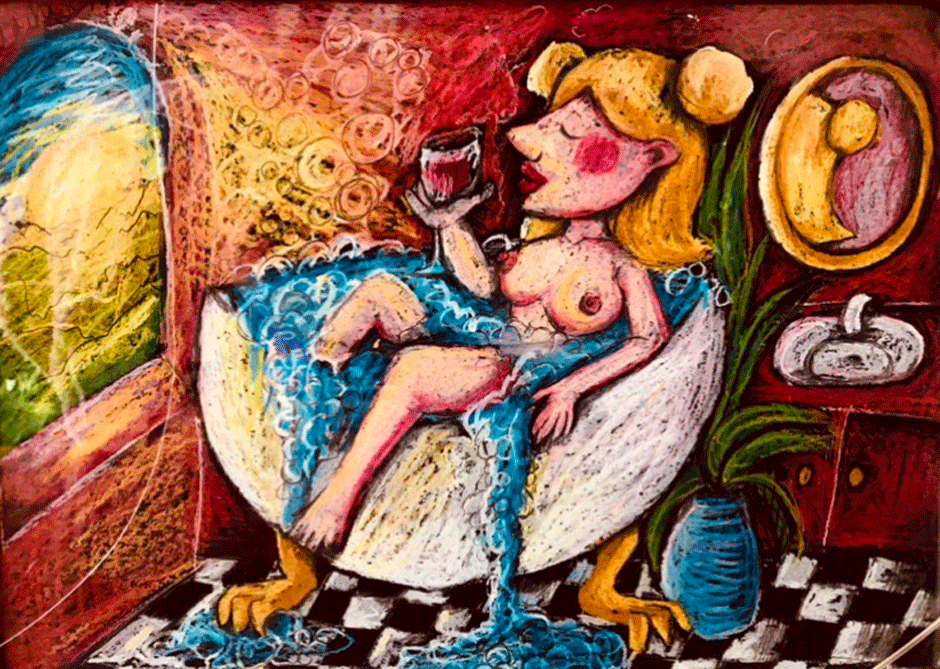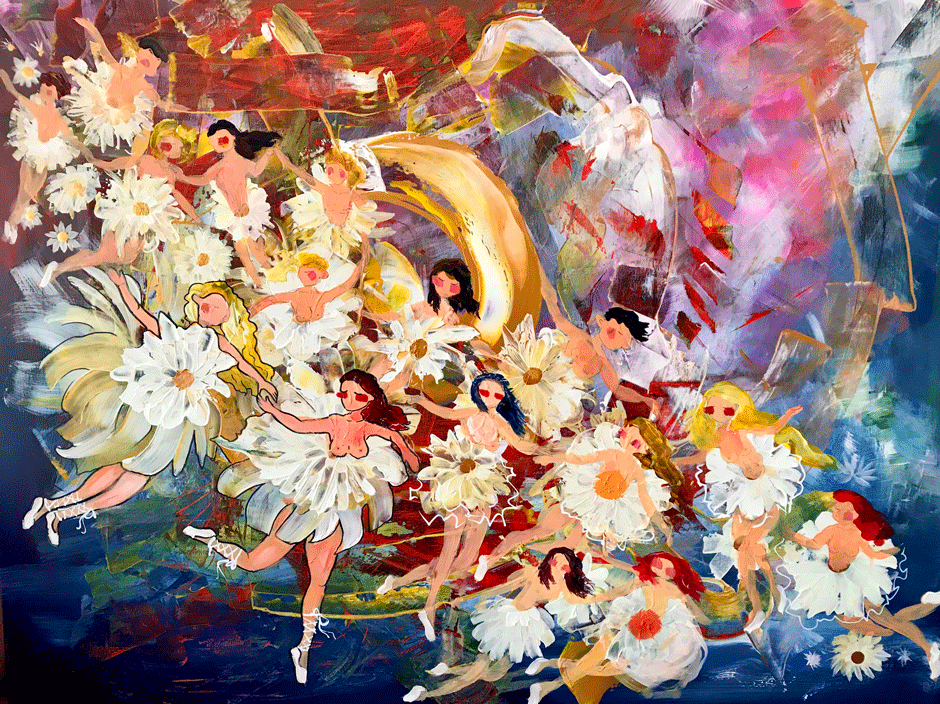Being Not A Body
Malachi Quinn
A story of sex and society, as told by the self portrait paintings
of Malachi Quinn.
“Sex is the unspoken god of society. Sex, gender identity and sexuality dictate both the social realm, and individual conscious experience in numerous ways. Explicitly there is the overtly outdated gender roles, but on a more subtle level there is a philosophical assumption underlying traditional views on sex and gender: that people are their bodies. This argument posits that mind and the body are one (as opposed to dualism: mind with a body) by extension no different than an animal or a complex biological computer. There is no soul, no free will, rather we are machinery fulfilling out the urge to procreate until we die.
Problematic. Treating people as merely their bodies is an argument long used to justify discrimination. For social change to occur across the board we must change the underlying philosophy and begin to see people as beings rather than bodies. If we see a person, a being, we look past labels and connect authentically. Discrimination becomes a foolish concept because fundamentally we are all the same.
This exhibition features two years’ worth of self-portraiture, and a life time of self-exploration and philosophical inquiry into the nature of identity and existence. It began as a documentation of change over time and turned into an immortalisation of aspects of myself. In the paintings I depict myself nude in various settings. Clothing is a label: man, woman, rich, poor, formal or casual, when taking away this label we see the being as it truly is. Furthermore, the normalisation of nudity in non-sexualised settings perpetuates the notion that bodies in and of themselves are not sexual objects. Everyone has a body, and for some reason it has become a controversial thing to see or even discuss. We often only see nudity in sexual contexts, in porn, in sexualised music videos, in advertisements using sex for profit, this misappropriation of the human figure subconsciously internalizes the idea that the function of the body is limited to sex, and thus it becomes an object of shame and secrecy. To counter this, I paint myself enjoying beautiful moments, a sunset, an art session, a bubble bath, a walk, all non-sexualised depictions of nudity. In this raw and real way, I hope to be seen for who I am, a being, not a body.

This painting series reflects my own journey of realising I am more than my body. Initially inspired by the recognition of ones own mortality following grief, the paintings follow my own journey of gender confusion and exploration. I began to go by he/him pronouns as I felt they better reflected who I was on the inside. Eventually I came to understand is that it is never our physicality that defines who we are, and gender expression is no different: people are more than their bodies. This transformation of ideology and physicality is shown chronologically in my paintings, with the 2020 works featuring my feminine side, cartoon, colourful with a cute style, which gradually become more fluid, dark and abstract, culminating in the 2021’s emotive expression of masculine figures.
The paintings are filled with symbology which I have created to tell a more nuanced story. Each painting is a chapter, and the exhibition is the book. The images are the words and the symbols provide the key to reading them. The presence of the armour costumes and sculptures is to create a sharp contrast to the 2D nudity, as reminder that in theory it easy to think we are our authentic selves in the privacy of our own minds, but in the 3D world, the pressures of society have us guarded. The juxtaposition between 2D nudes and 3D armour is to illustrate this difference between who we are to ourselves, vs what costumes (or what ‘face’) we wear into the world and share with others. It is my hope that beginning to see people as beings, rather than bodies, will mitigate the need for such defences. The world I hope to see built is open and encouraging of expression and diversity. I believe this world begins with a subtle but powerful shift in perspective: recognising oneself and others as more than their bodies.
Treating people as more than their bodies is a call to celebrate diversity and encourage open exploration of these ideologies. As sex and sexuality is such a fundamental facet of the human experience, squishing it into acceptable categories and punishing any deviation is not the way forward. Instead, we should celebrate all expressions of ourselves, accept others and aim to see people for who they truly are. Human beings are capable of so much more than fulfilling labels. Humans are beautiful and our bodies are not label makers. Fundamentally, we are so much more than our bodies. Lets celebrate ourselves and each other as human beings.”
– Malachi Quinn


